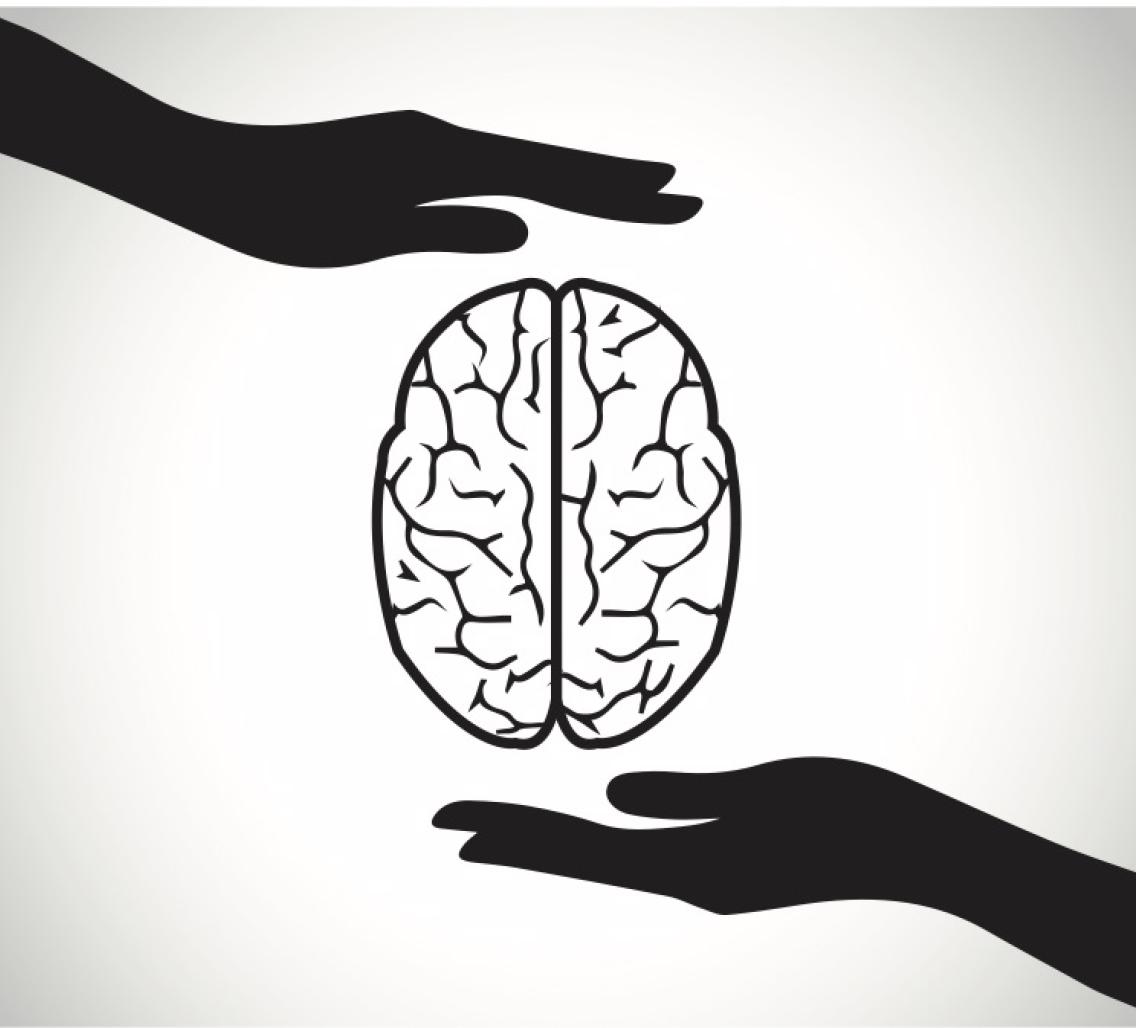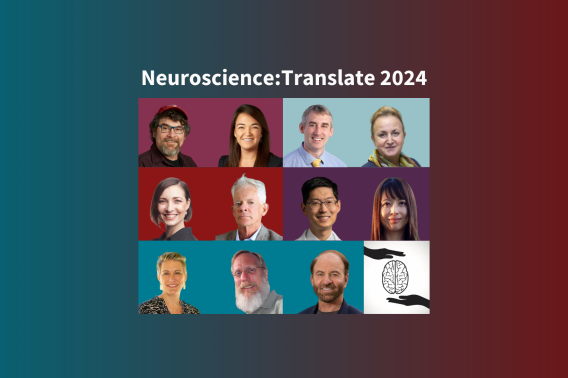Neuroscience:Translate awards advance game-changing technologies

The Wu Tsai Neurosciences Institute and Stanford Byers Center for Biodesign are pleased to announce their fourth round of Neuroscience:Translate awards.
The Neuroscience:Translate grant program supports teams of researchers collaborating across disciplinary boundaries in the neurosciences to develop practical solutions to address unmet clinical needs.
These year-long awards of up to $100,000 aim to accelerate transformation of the scientific discoveries and technological innovations occurring every day in Stanford laboratories into life-changing medical devices, procedures, medications, digital health platforms, and other applications.
“The program’s goal is to enable Stanford neuroscientists — both clinicians treating patients and researchers developing novel medical technologies — to bring their valuable discoveries to patients, most often through new startup companies or via licensing agreements with existing companies,” said Gordon Saul, the executive director of Stanford Byers Center for Biodesign. “All too often, discoveries with real promise for advancing human health languish for years in research labs, because it takes a lot of resources and specific kinds of expertise to develop them to the point where they can get into the hands clinicians and patients."
Wu Tsai Neuro and the Stanford Byers Center for Biodesign have awarded Neuroscience:Translate grants annually since 2019. In addition to the grant itself, winning teams are paired with mentors from the Neuroscience:Translate oversight committee, who can provide strategic advice and connections to help bring researchers’ discoveries and technologies to the clinic.
“There are very few areas with larger unmet clinical needs than the neurosciences. It’s a space that’s desperate for new targets and new perspectives,” said committee member Sarah Bhagat, a general partner at Sofinnova Investments, a biopharmaceutical venture capital firm based in Menlo Park. “It has been exciting to partner with Stanford thought leaders and innovators as a resource and ally in their mission to translate what they have done in their labs into the clinic to make a real impact on patients.”
Past awards have funded a wearable device to aid home stroke rehabilitation, a deep learning approach for automated seizure localization, a protein-engineered nerve implant to enhance neural regeneration following injury, an at-home solution for diagnosing dizziness attacks, a novel drug screening platform for neurodegenerative disease and more.
“In the 4 years since launching the program, we have continued to be deeply impressed by the quality of the proposals we receive, and many of our funded projects are already making significant progress into clinical trials to advance patient care,” Saul said.
This year, the Wu Tsai Neurosciences Institute funded three new Neuroscience:Translate projects and renewed three ongoing projects for an additional year of funding. Awardees hail from 11 Stanford departments across the Schools of Medicine, Engineering, and Humanities and Sciences. Their projects aim to advance digital health and virtual reality treatments for autism and major depression; to engineer devices to aid patients with Parkinson’s disease and hearing loss; and to develop new pharmaceuticals to treat Parkinson’s disease and repair damaged nerves.
“Nerve injury can have devastating consequences for people affected by it,” said otolaryngologist Jon-Paul Pepper, the director of the Stanford Facial Nerve Center, whose collaboration with stem cell biologist Philip Beachy aims to develop a targeted drug to boost nerve regeneration following injury. “As a surgeon who treats these patients, I have a deep respect for the limits of the body to recover from these injuries. We are so excited about this project because our research points the way to new tools that I can rapidly integrate into existing surgical treatments to improve patient outcomes.”
Francis Wong, a Stanford Biodesign Innovation Fellow leading a collaboration between surgeon-scientist Peter Santa Maria and materials scientist Guosong Hong, a Wu Tsai Neuro faculty scholar, to develop a neurostimulation device to restore hearing, said their Neuroscience:Translate award, which was renewed for a second year of funding, “has been crucial to our team's ability to take this project forward and develop core aspects of our electrode technology. It has supported new collaborations with Stanford professors and our interactions with the program mentors have helped us develop a plan for how to take this from a university-based project to a medical device that has real impact in the world.”
Funded Projects
Development and validation of selective novel small molecule therapeutics for Parkinson's Disease
- Mehrdad Shamloo, PhD, Neurosurgery; Dir. Wu Tsai Neuro Behavioral and Functional Neuroscience Laboratory
- Katrin Andreasson, MD, Neurology and Neurological Sciences
- Kathleen Poston, MD, Neurology and Neurological Sciences
Parkinson’s disease is the second most common neurodegenerative disorder, affecting a million people or more in America alone. Many lines of evidence point to a role of inflammation and the immune system in triggering neurodegeneration and disease progression.
This team will use their Neuroscience:Translate award to develop small molecule therapeutics with immunomodulatory properties linked to Parkinson’s disease and test their potentially therapeutic effects in cell cultures and animal models of the disease.
Extended reality (XR)-enhanced behavioral activation for treatment of major depressive disorder
- Kim Bullock, MD, Psychiatry and Behavioral Sciences
- Jeremy Bailenson, PhD, Communication
Depressive disorders are a global crisis with increasing incidence and prevalence — exacerbated by the COVID-19 pandemic. Major Depressive Disorder (MDD) is the 11th leading cause of disability and mortality worldwide, but it is estimated that less than 40 percent of those who seek help receive minimally adequate treatment. Evidence-based psychotherapy can effectively treat depression for many, but there are many barriers to accessing, disseminating, and scaling these approaches.
This team believes extended reality (XR) technologies are well-positioned to address and eliminate these barriers. The team has created a simple XR-enhanced form of Behavioral Activation therapy, one of the simplest and most effective forms of evidenced-based psychotherapy, which can easily be taught to and delivered by primary care providers and mental health providers. Following promising results from an initial feasibility study, they will use the Neuroscience:Translate award to test the efficacy and scalability of this approach and hope to accelerate the development of extended reality technologies to improve treatment options for major depression.
Topical Hedgehog modulators to enhance motor nerve regeneration after injury and repair
- Jon-Paul Pepper, MD, Otolaryngology
- Philip Beachy, PhD, Urology and Development Biology
Nerve injury due to trauma, surgery, inflammatory disease and other causes affects as many as 1 million people annually around the world. In some cases, nerves can regenerate naturally or be repaired via surgery, but often patients are left with permanent loss of movement or sensation — a problem that is particularly acute for patients from underserved communities.
This team has identified a critical molecular pathway that, when activated by a targeted drug, can promote successful regeneration following surgical nerve repair. Preliminary data suggests systemic administration of a small-molecule drug candidate can improve recovery from nerve injury. In order to limit potential side-effects of systemic treatment with this compound, the team will use the Neuroscience:Translate funds to test several approaches to topically apply this compound directly to damaged nerves during surgery to safely improve patient outcomes.
Autism digital therapy with embedded endpoints and artificial intelligence for progress tracking and adaptive care (renewal)
- Dennis Wall, PhD, Pediatrics
- James Landay, PhD, Computer Science
- Gary Darmstadt, MD Pediatrics
Standard treatments for Autism can lessen symptoms but can take months or years for families to access, often too late to have appreciable impact. In their first round of Neuroscience:Translate funding, this team built a smartphone app (guesswhat.stanford.edu) that uses computer vision and machine learning to reinforce prosocial learning while simultaneously measuring a child’s progress in socialization.
Following promising results from their first year of funding, the team will use their renewal award to assess the appropriate therapeutic “dosage” of the game, develop novel outcome measures, and expand its reach to a more diverse set of children around the world. The project aims not only to develop a digital therapy system for the families of children with autism, but also to blaze a trail for accessible digital health interventions for children with any form of developmental delay.
Development of an extracochlear neurostimulation device to restore hearing (renewal)
- Peter Santa Maria, MBBS, PhD, Otolaryngology
- Guosong Hong, PhD, Materials Science and Engineering, Wu Tsai Neurosciences Institute Faculty Scholar
Sensorineural hearing loss is an increasingly prevalent condition that causes disability to over a third of US adults aged over 65. As the condition progresses, it selectively affects high-frequency hearing that is critical for speech comprehension. For the 1.2M US adults with bilateral severe-to-profound high-frequency loss the only available treatment is a cochlear implant, however the risk of residual hearing loss associated with this irreversible procedure leads most patients to forgo treatment.
This team is developing a breakthrough device to restore high-frequency hearing that preserves residual hearing through a reversible and minimally invasive approach.
Remote reliable measurements of movement using a digitography device to solve an unmet need in neurological diseases (renewal)
- Helen Bronte-Stewart, MD, Neurology, Neurosurgery
- Allison Okamura, PhD, Mechanical Engineering, Computer Science
Unlike in diabetes, people with Parkinson’s disease have no simple biomarker that can be measured remotely to track symptoms and guide a physician in making complex care management decisions. Evaluations usually require in-person examinations by a trained neurologist, especially for the assessment of rigidity, a symptom characterized by a progressive resistance to passive limb movement.
This team has developed the first technology capable of objectively measuring major motor symptoms of PD in real time — based on a simple 30-second repetitive tapping task on tensioned engineered piano keys. The researchers will use the Neuroscience:Translate award to advance the technology so that it can be used remotely or in the clinic, dramatically improving the quality of and accessibility to care for PD patients, especially in underserved populations.
